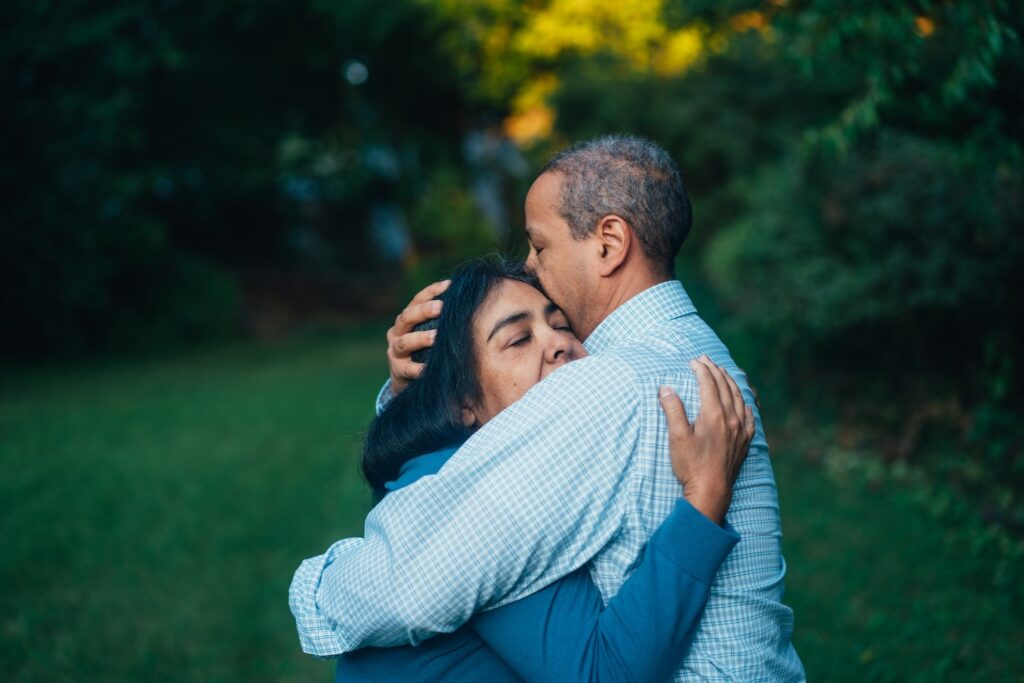How To Forgive Someone Who Hurt You: 23 Top Strategies

This new article will show you everything you need to know about how to forgive someone who hurt you.
When someone inflicts harm upon you, there’s a natural inclination to hold onto the anger and resentment that surfaces in the aftermath of their actions. Nonetheless, embracing forgiveness can yield positive effects both mentally and physically, facilitating a departure from dwelling on the transgressions of others.
Pardoning oneself for causing harm to another is a formidable task, often proving more challenging than forgiving a friend or family member. With a measure of patience and compassion, one can acquire the ability to forgive either oneself or others, thereby moving beyond feelings of anger, hurt, or resentment.
How To Forgive Someone Who Hurt You:
- 1. Understanding Forgiveness: A Willingness to Move Beyond Injustice
The act of forgiving is a deliberate choice, not an instantaneous occurrence. Although the decision to forgive can be consciously made, it requires time to navigate through emotions and genuinely come to terms with the situation.
In contrast to the usually held belief, forgiveness doesn’t mandate forgetting. Even if one forgives, fully erasing the memory of the inflicted harm may prove challenging, specially if it caused profound distress.
- 2. Clarifying Forgiveness: Not Condoning the Wrongdoer’s Actions
In situations requiring forgiveness, the individual has likely experienced significant hurt because of the words or actions of another. Granting forgiveness doesn’t indicate approval or justification of the wrongdoer’s behavior. It is critical to communicate that forgiving someone doesn’t equate to accepting the appropriateness of their actions. Genuine regret on the part of the wrongdoer is indicated by a commitment to altering their behavior and avoiding future harm.
- 3. Reflecting on the Reasons for Forgiveness
The decision to forgive demands careful consideration, particularly when the transgression is harsh. Taking time to reflect on emotions and rationale aids in gaining a deeper understanding of the situation. Reasons for forgiveness may include the desire to resolve personal feelings of anger, confusion, or hurt, a recognition of the value of the relationship, and a belief in the worthiness of forgiveness if the wrongdoer demonstrates a genuine commitment to change.
- 4. Exercise Caution in Granting Multiple Chances
While forgiveness is a noble act, it’s critical to set boundaries and avoid giving someone numerous chances, particularly if they persistently and knowingly cause harm or commit harsh transgressions. In instances where an individual demonstrates a pattern of mistreatment or poses a genuine threat to your well-being, it becomes essential to prioritize your own safety.
For instance, forgiving an abusive father doesn’t necessarily mean maintaining contact if there’s a clear indication that mistreatment will persist. Similarly, if a romantic partner engages in harsh emotional or physical abuse, prioritizing self-protection by ending the relationship may be necessary.
- 5. Embrace Forgiveness as a Personal Choice
Forgiveness should be a voluntary and conscious decision, free from external pressure or reluctance. It is a personal choice made for one’s own well-being, and external opinions about what one “should” do shouldn’t coerce premature or uncomfortable forgiveness.
If you aren’t ready to forgive, it’s totally within your right to express that sentiment. You owe forgiveness to nobody else, and the decision should align with your own comfort and readiness.
- 6. Allow Yourself Time for Emotional Processing
The process of forgiveness often requires time to unravel complex emotions and determine the proper plan of action. Grant yourself the space to process by engaging in activities such as journaling, confiding in a mentor or trusted confidant, expressing emotions through art, or temporarily redirecting focus to other aspects of life. Taking the time to untangle feelings is a critical step in making informed and emotionally grounded decisions.
- 7. Evaluate the Health of the Relationship and Your Priorities
When contemplating forgiveness, specially in the context of substantial harm, assessing the overall health and value of the relationship becomes paramount. Reflect on whether the relationship is worth salvaging (1), considering if the positive aspects outweigh the negative ones.
Contemplate whether both individuals can grow and overcome challenges with effort and time. If the relationship contributes positively to your life, muster the courage to address the issues. However, if it tends to have a more detrimental impact, it is suitable to choose paths like parting ways or limiting contact, all while maintaining the ability to forgive for private healing.
- 8. Initiate Reconnection Efforts with Individuals You Wish to Maintain Relationships With
In the midst of life’s busyness, maintaining connections with friends can prove challenging. When conflicts arise and create distance between people, salvaging that connection becomes an even more daunting task.
If your intention is to extend forgiveness, take the critical first step by reaching out. This action alone can foster a sense of openness and optimism in the process. Initiating contact can be challenging, but sometimes, a self-encouragement like “Here we go” can provide the mandatory push to pick up the phone and reconnect.
- 9. Seek an Opportunity to Share Perspectives
Whether through a face-to-face meeting, phone conversation, or electronic communication, the objective remains consistent: request time from the other person to articulate your thoughts and feelings with regard to the conflict. Emphasize your willingness to listen to their perspective, creating an environment conducive to an open discussion. If the person declines a meeting, there are alternative approaches, such as expressing your feelings and thoughts through writing, using a journal as a tool for emotional processing.
- 10. Engage in a Constructive Discussion
Conversations about conflicts can be challenging, particularly when negative emotions have escalated. Framing the discussion with the aim of accomplishing a peaceful resolution is crucial for managing the hurt and disappointment experienced. The process can be structured as follows:
- Begin by expressing gratitude for the person’s willingness to meet.
- Clearly state the goal of understanding one another’s perspectives to reach a peaceful resolution.
- Share your side of the story using “I” statements to convey thoughts and feelings without accusations.
- Inquire if there are any clarifications you can provide before they share their perspective.
- Pose questions that extract information about their intent, motives, thoughts, and feelings to enhance understanding.
- 11. Acknowledge and Apologize for Personal Mistakes
In most conflicts, misunderstandings or misconceptions play a significant role. To ease tension and foster open communication, taking responsibility for one’s role is critical. Apologizing for any mistakes made is an action that contributes to creating an environment conducive to resolution and open dialogue.
- 12. Acknowledge and Embrace the Other Person’s Apology
When you’ve engaged in a discussion about the situation, and the other person has genuinely apologized, take the significant step of accepting it. Even if it requires some effort to articulate, expressing, “I accept your apology,” is pivotal in fostering a sense of forgiveness for yourself. Consider phrases like:
- “I accept your apology, and I forgive you.”
- “Your apology means a lot. Can we move forward as friends?”
- “I appreciate your apology. While I may not be ready to forgive you entirely, I’m committed to working on it. Please give me some time.”
- 13. Demonstrate a Commitment to Progress and Moving Forward
If maintaining or rebuilding a relationship with the person is important to you, your actions must reflect a sincere commitment to moving forward. The process of forgiveness contributes to the improvement of relationships by avoiding grudges and refraining from dredging up past grievances.
It involves a genuine willingness to share laughter and lighthearted moments with the individual. Progressing beyond a conflict brings significant relief, and this sense of relief can serve as motivation for positive actions.
As time elapses and strides are taken towards reconciliation, you may find residual feelings of betrayal influencing your interactions with the person, specially during intense arguments or discussions. Recognize that this might indicate unprocessed emotions. Address this by having open conversations about your feelings with the person involved or seeking support from someone else, as this is a normal part of the healing process.
- 14. Observe Changes in Their Behavior
Monitor whether the individual is making an effort to modify their behavior (2). Have you provided them with the opportunity to change by expressing how their actions have impacted you? If so, observe whether or not they are genuinely working towards adjusting their behavior or if they persist in actions that disregard the impact on you.
For instance, consider a scenario where your sister ridiculed your nose, and you communicated that it hurt your feelings. Pay close attention to whether she repeats the behavior. While occasional forgetfulness might require reminders, particularly if it’s a long-standing habit, genuine commitment to change involves taking your concerns seriously and ceasing the behavior after the initial request.
- 15. Acknowledge Your Mistakes and Understand Why They Were Wrong
Rather than offering excuses for your actions, take the time to acknowledge that what you did was not acceptable and understand the reasons behind why it shouldn’t be repeated. Resist the urge to let yourself off the hook, as the same standards you apply to others should also apply to your own actions. Recognizing your actions without making excuses becomes a critical step in personal accountability.
- 16. Identify and Reflect on Your Imperfections
Recognize that, like all humans, you possess flaws. Delve into contemplation about your actions, exploring the precise character flaws that influenced your behavior.
This introspective process serves not only to understand the motivations behind your actions but also to equip you with insights to avoid similar situations in the future. For instance, lying to a friend about being busy may indicate difficulty in managing commitments, while cheating on a test might be linked to academic struggles or the need for more focused study time.
- 17. Extend Apologies to Those You’ve Wronged
If your actions have caused harm to someone you care about, take the initiative to reach out and offer a sincere apology. While there’s no guarantee that they will accept your apology, taking this step can initiate the healing process and work towards reconciliation. An easy message like, “I realize I hurt you when I lied the other day, and I wanted to reach out to see if you’re open to discussing it,” demonstrates your willingness to make amends.
- 18. Verbally Affirm Self-Forgiveness
Even although it might feel somewhat unconventional, vocalizing your forgiveness can aid in the process of internalizing and moving on. Once you’ve taken tangible steps to rectify your actions, uttering the words, “I forgive myself,” serves as a robust acknowledgment.
This practice not only contributes to personal growth but also encourages heightened mindfulness, making you more vigilant in avoiding similar mistakes in the future. Consider every mistake as a valuable lesson that enriches your understanding and guides you towards more informed decisions.
- 19. Cultivate Empathy and Compassion Through Practice
The abilities of empathy and compassion are skills that can be developed with intentional practice. Similar to acquiring any new skill, consistent practice is key. A significant step is treating others the way you wish to be treated, marking the midway point in fostering empathy and compassion.
Implement acts of kindness in public settings, such as assisting someone struggling to enter a store or offering a friendly gesture to someone who appears to be having a difficult day. The goal is to let others experience the positive impact of your compassionate actions.
Expand your empathy by engaging in conversations with individuals beyond your social circle. Challenge yourself to initiate a dialogue with a stranger on a weekly basis. If striking up conversations with strangers proves challenging, consider broadening your perspective by reading blogs written by individuals with diversified life experiences. Go beyond surface-level discussions and respectfully inquire about their lives, enriching your understanding and fostering a more empathetic worldview.
- 20. Question and Adjust Your Perspective
Examine your strongly held beliefs with regard to situations where you felt wronged by someone. Frequently, personal perspectives can become skewed and benefit from returning to a balanced state. Keeping things in perspective is important, particularly if your viewpoint is causing harm. Ask yourself questions such as:
- Is this truly significant, or will it matter in the long run?
- Is this worth my time and energy?
- Am I making assumptions, and are there circumstances I might be unaware of?
- Should I prioritize letting go over dwelling on the issue?
- Are my feelings or behaviors hindering my progress towards better things?
- 21. Compile a List of Benefits from Letting Go of Resentment
Reflect on how harboring feelings of resentment currently impacts your life and examine the positive changes that could result from letting go. Create a list outlining potential benefits, such as
- Freedom from endless rumination during sleepless nights.
- Liberation from a victim mentality, fostering empowerment and control.
- Closure to a negative chapter, allowing the focus to shift towards creating a positive one.
- Reduced fixation on past mistakes, enabling the rebuilding of stronger relationships.
- Empowerment through remembering without feeling helpless, utilizing knowledge to identify and avoid similar issues in the future.
- 22. Shift from Resentment to Gratitude
Gradually work on releasing resentment and actively seek the positive aspects of a situation. While initial strong emotions are natural, holding onto them indefinitely can become toxic. Combat negativity by consciously finding the silver linings. For example:
- “Completing the semester means I don’t have to deal with that challenging professor anymore. She’s no longer a concern.”
- “I appreciate the support from my dad and therapist as I exit this abusive relationship.”
- “My mom’s willingness to listen and address the impact of her criticism is a positive step forward in our relationship.”
- “Having another chance at love after leaving a difficult relationship is a source of happiness.”
- “My boyfriend’s effort to change habits and treat me better provides hope for improvement.”
- “Cutting contact with my toxic father was the right choice, and I’m happier without his presence in my life.”
- 23. Acknowledge and Value the Lessons Learned
Recognize that people and opportunities enter your life with the purpose of imparting valuable lessons. Each experience contributes to your wisdom and aligns you more closely with your life goals, encompassing lessons from both positive and challenging encounters.
For instance:
- “I gained insight that lending money to friends may strain relationships, prompting me to reconsider such actions.”
- “Understanding that not everyone treats belongings with the same care has made me cautious about lending cherished items.”
- “Interviewing potential roommates has become a valuable practice to ensure compatibility in our lifestyles.”
- “I’ve adopted a mindset of assuming ignorance before attributing malice, realizing that people may unknowingly hurt my feelings.”
- “My father’s consistent support during crises has reinforced my trust in his reliability.”
- “Discovering my inner strength has been a transformative realization, highlighting resilience beyond my initial perception.”
In summary
To forgive someone who has hurt you, start by acknowledging and understanding your own emotions and the impact of their actions. Reflect on the reasons for forgiveness, considering your own well-being and the potential for private growth. Practice empathy and compassion, both for yourself and others, and actively work on letting go of resentment.
Initiate open communication with the person, expressing your feelings and allowing them to share their perspective. Pay attention to whether there are genuine efforts on their part to change their behavior. Accept apologies sincerely offered and demonstrate a commitment to moving forward if you wish to maintain the relationship.
In your self-reflection, accept responsibility for your actions, recognize flaws, and apologize to those you have wronged. Question and adjust your perspective to maintain a balanced view of situations. Compile a list of the benefits of letting go of resentment, focusing on the positive aspects and potential for private growth. Finally, appreciate the learning experiences gained from each situation, recognizing that they contribute to your wisdom and resilience.
I want to thank you for taking the time to read my article about how to forgive someone who hurt you. I sincerely hope its contents have been a good help to you.







